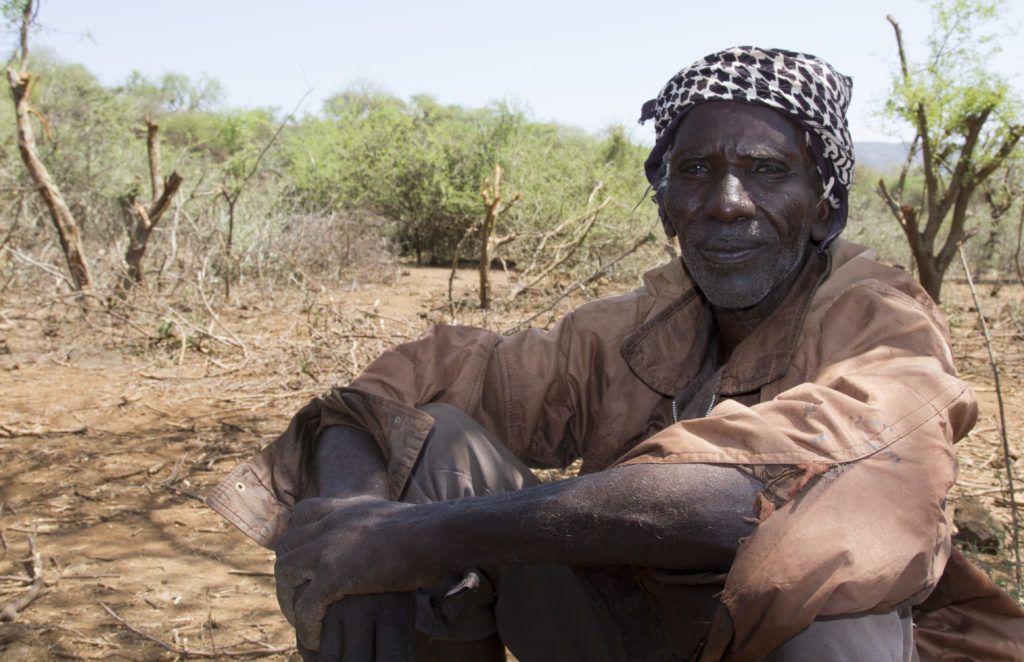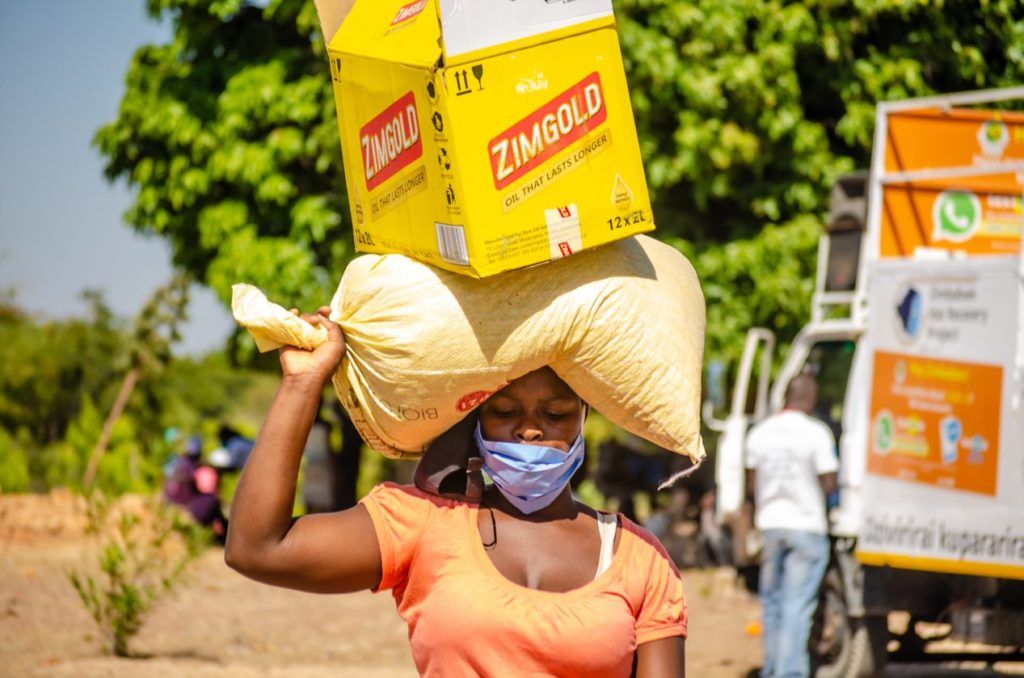 Stories
Stories
June 26, 2020 • 4 min read
As the world grapples with the unprecedented COVID-19 public health crisis, GOAL is committed to doing everything it can to protect some of the world’s most vulnerable populations in the Global South.
GOAL is calling for a community centred, integrated approach to be at the heart of the international response to Covid-19, and on the international community to urgently work together to prevent the loss of life and livelihoods by focusing on actions in six key areas.
The first of these areas, is food security and nutrition.
The World Food Programme warns that the Covid-19 pandemic will see more than a quarter of a billion people suffering acute hunger by the end of the year. Restrictions on movement within and across countries can hinder food-related logistic services, disrupt entire food supply chains, and affect the availability of food. Impacts on the movement of agricultural labour is also posing critical challenges to food production.
The 2020 Global Nutrition Report warns that those suffering from under nutrition are more susceptible to COVID-19 and risk more severe complications. Even before COVID-19 hit, 135 million people on the planet were already struggling with acute food insecurity due to pre-existing shocks or crises. Also, for vulnerable, urban populations dependent on street vendors and markets for their provision of food, lockdown measures preventing traders’ access to the city could prove disastrous.
In addition, the current locust outbreak in the Horn of Africa is a crisis within a crisis that is putting the food security and livelihoods of millions of people at risk. Left untreated this outbreak will cause up to $8.5 billion worth of loss damage by the end of 2020. GOAL is working with local partners to ensure lifesaving and life sustaining nutrition programming continues for adults and children at risk of malnutrition across all countries of operation. This programming includes the tr

GOAL Ethiopia’s Nutrition Programme Manager Benlay Ayalew photographs and stands amidst the locust swarn in the Borena region of Ethiopia in mid February of 2020.
eatment of acute malnutrition in hospital settings and in the community, stabilisation centres, outreach therapeutic programs and targeted supplementary feeding programmes for infants and young children. Throughout these programmes, GOAL is ensuring guidance on risk minimisation of transmission to ensure staff and participant safety.
Those living in conflict zones, those displaced in their own countries and those living in refugee camps are especially vulnerable to food insecurity, including in north-eastern Syria where GOAL delivers lifesaving and life-sustaining services to up to one million people every year. Likewise, in both Zimbabwe and South Sudan, approximately half of the population are estimated to be in need of food support following a third consecutive year of drought in 2019. These numbers are likely to increase substantially over the course of 2020. In our programmes, GOAL is providing targeted food aid and unconditional cash assistance to help communities access basic food and agriculture inputs.
The international community must take decisive collective action to prevent the main drivers of malnutrition and food insecurity.
GOAL is asking that:
- Governments quickly move to implement pro-poor social protection programmes. Targeted assistance in the form of cash assistance and, where markets are not sufficiently functional, food aid and climate smart agricultural inputs, must be made available for those at risk of further shocks, food insecurity and malnutrition.
- Countries must be supported to implement broadscale measures to control locust invasions, addressing this major crisis within the Covid-19 crisis. This includes providing rapid and flexible financing and technical support to countries affected by the outbreak. Governments are encouraged to exempt locust control, surveillance, response activities and technical staff from movement restrictions to help control the locust invasions.
- The continuation of essential curative nutrition care services for acute malnutrition (IMAM) with integrated Infection Prevention Control messaging to protect health staff and clients must be secured during the crisis
Case Study: Nutrition in Zimbabwe
GOAL has launched a lifesaving nutrition programme in Zimbabwe which will reach almost a quarter of a million children under the age of five years over the next 12 months. The programme is funded by ECHO and will run in partnership with the Ministry of Health and Child Care (MoHCC).
According to the Humanitarian Needs Overview (2019), at least 5.1 million Zimbabweans are in need of food assistance, while 1.6 million people are facing life threatening needs. 
The Nutrition Emergency Response for Early Detection and Treatment (NERET) project, which will be rolled out in Masvingo Rural, Bikita, Gutu, Buhera, Mutare Rural and Chipinge Districts, will support 243, 000 children diagnosed with Severe Acute Malnutrition (SAM) and Moderate Acute Malnutrition (MAM) with nutrition interventions.
The project will also provide food assistance to households with confirmed cases of malnourished children. In addition, GOAL will strengthen the technical skills of health workers at health facilities, while improving the physical resources to allow for the diagnosis, treatment and monitoring of acute malnutrition cases.
The project will implement the Family MUAC (Mid-Upper Arm Circumference) approach that is centred on empowering the whole family to take measurements and keep track of their children’s nutritional status. This approach is even more relevant during the COVID-19 pandemic to encourage families to conduct measurements at household level.
The start of this ECHO-funded project comes in light of a worsening humanitarian situation in Zimbabwe due to hyperinflation, drought, crop failure, Cyclone Idai and the COVID-19 outbreak.


